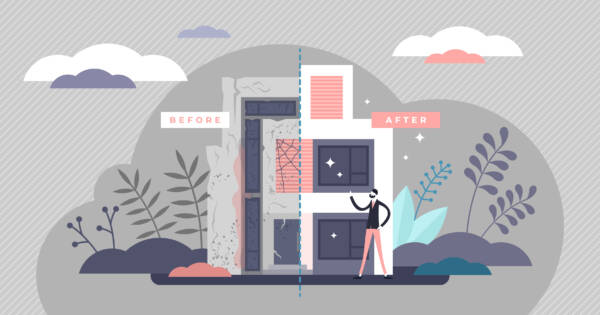Thanks to the recent housing market boom, the property value of most homes has increased. According to a recent National Association of Realtors report, home prices have soared about 30% since 2019. “As a result,” the report says, “a typical home is about $80,000 more expensive than pre-pandemic.”
That means most owners have seen the value of their homes increase. Sounds like a good thing, right? While it’s exciting to see that your home is suddenly worth more money, there are some potential downsides. Keep reading to prepare yourself.
Higher Property Taxes
If you haven’t received a property assessment recently, then you might want to brace yourself for some sticker shock. That’s because a jump in home value can translate to higher property taxes. At a time when inflation is driving up the price of most things, higher property taxes can be even more of an unwelcome surprise than usual.
For example, CBS News says Vermont homeowner Anne Van Donsel’s property assessment determined the value of her home doubled, ultimately raising her property taxes by $2,000. “I hadn’t planned on spending thousands of dollars more on property taxes for the year,” she told the source.
Should you think your property assessment gets the value of your home wrong, there is an appeal process. We’ll get into the details later on.
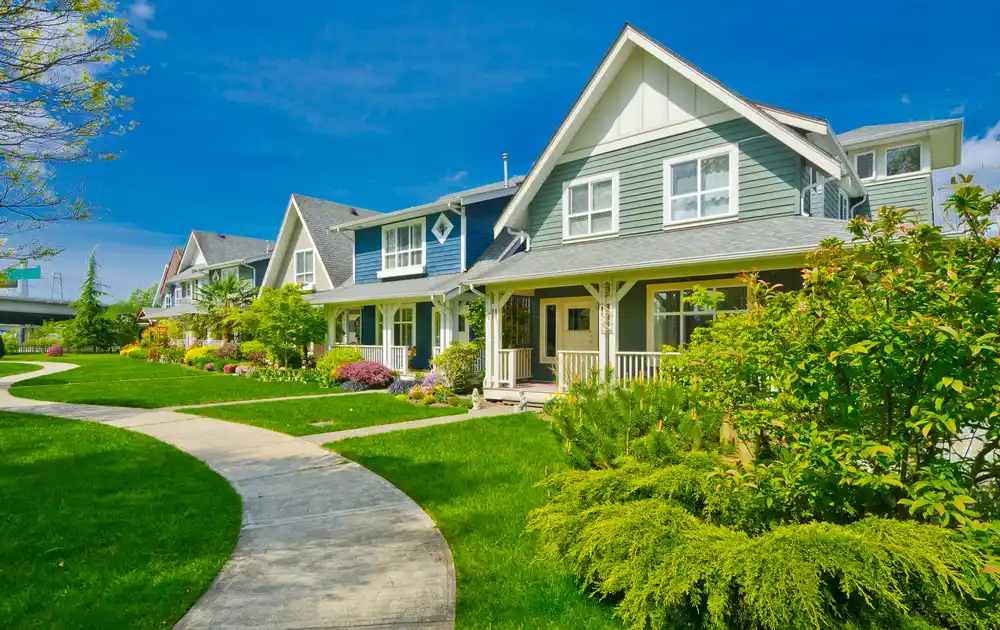 Shutterstock
ShutterstockCould Price Some Out of Their Homes
A lot of Americans already feel a financial strain, so higher property taxes aren’t convenient. However, the burden will be especially severe for some homeowners. Higher property taxes could put immense pressure on fixed-income retirees — and even price some out of their homes.
If a homeowner doesn’t have a steady source of income besides social security payments, then there might not be room in their budget for a significant property tax increase. Homeowners in this situation should see if they qualify for a property tax exception program that reduces their tax bill.
 Shutterstock
ShutterstockMore Expensive To Downsize
Empty-nesters wanting to downsize are another group that higher property values could put in a pickle. While the values of their current homes are up, so are the prices of smaller properties they’ll be considering. Since mortgage interest rates have recently soared, that can make downsizing more expensive than anticipated.
“Property values have increased so dramatically that downsizing may not allow for any savings, or be financially viable at all,” as Insider explains. That means some homeowners could have no choice but to stay in homes that are too big for their current needs and pricier to maintain than smaller homes.
 Shutterstock
ShutterstockChallenging To Move for Other Reasons, Too
Homeowners who still have a mortgage face a similar dilemma: “They’ll pay far higher interest on a mortgage,” real estate expert G. Brian Davis tells Insider, “and they’ll have to pay the full bloated price for their next home.”
While their increased home equity can help offset higher home prices to some extent, they still have to contend with higher mortgage interest rates. And if they currently have a low fixed-rate mortgage, then they could be taking a significant financial blow.
For example, a homeowner who refinanced their mortgage rate to 2.5% in the last year or so may flinch when they see mortgage rates have doubled. As a result, the double whammy of higher interest rates and home prices could keep them from upgrading to a bigger home or relocating somewhere with a high cost of living.
 Shutterstock
ShutterstockHome Insurance Could Get Pricier
“You don’t need to automatically raise the coverage for damage to your home just because your home’s value has risen,” according to Consumer Reports. But as your home equity increases, you may want to invest in additional coverage. That’s because your net worth increases at the same time.
For example, the source suggests purchasing umbrella liability coverage in case someone gets hurt on your property and sues you. And even though a jump in home value doesn’t necessarily mean your home insurance premium will get more expensive, inflation has made rebuilding pricier. So, the cost might increase for that reason.
 Shutterstock
ShutterstockMight Take Longer To Sell Your Home
The combination of higher interest rates and higher home prices is also causing the housing market to cool slightly. That affects any homeowner who wants to sell their home in the near future. Since homes are sitting on the market longer, more home sellers are having to lower their asking prices.
For example, Deseret News says the Utah housing market is seeing the ripple effects of this convergence. According to Redfin data, the source says nearly 48% of homes for sale in Provo had price drops in May 2022. Salt Lake City and Ogden weren’t far behind, with about 46% and 43% of homes for sale getting price cuts.
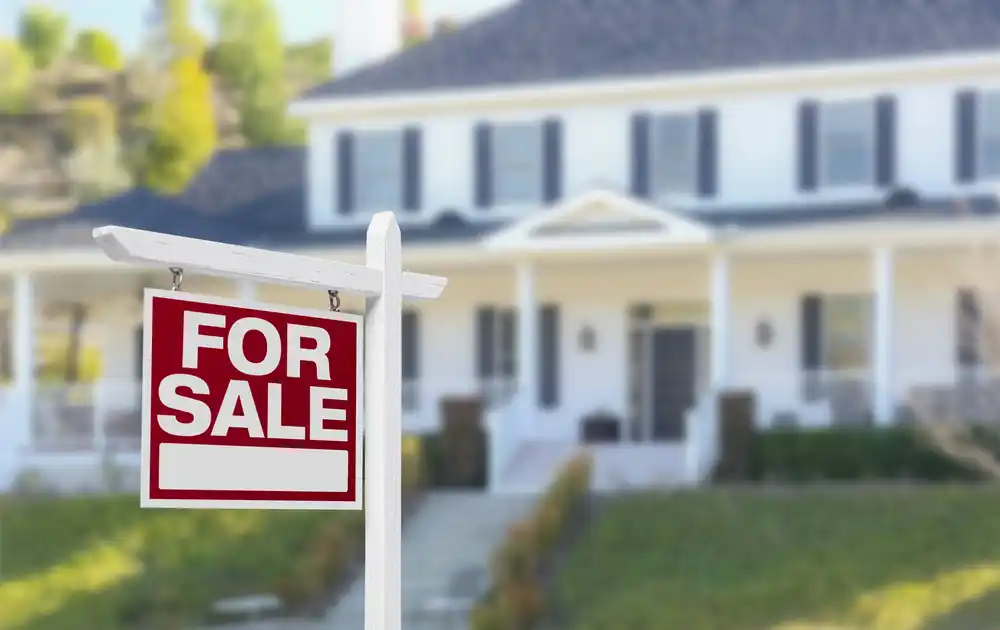 Shutterstock
ShutterstockAppealing Your Property Assessment
Counties and cities periodically reassess properties — some places do it every year or so, while others wait several years. So, many homeowners are just starting to see the recent housing market boom reflected in their property assessments and taxes. If you think your new property assessment is wrong, then you can appeal it.
There should be information about the appeal process somewhere on the assessment. “Typically, there’s a window of time for submitting an appeal,” according to CBS News, “sometimes as short as a few weeks.” For example, the source says property owners in Cook County, Illinois, just have 30 days to file an appeal.
 Shutterstock
ShutterstockHow To Appeal
Should you decide to appeal your property assessment, the first thing you’ll want to do is look at how much comparable homes are selling for in your local market. “If the new assessment values your home higher than what comparable properties have sold for,” CBS News says, “then you may want to move forward with an appeal.”
The source suggests getting a third-party assessment from a local real estate agent or professional appraiser. A third-party assessment can help you make your case in front of the appeals board. When it’s time to present your case, the source has some advice: “Keep it professional, talk about the facts — and don’t get angry.”
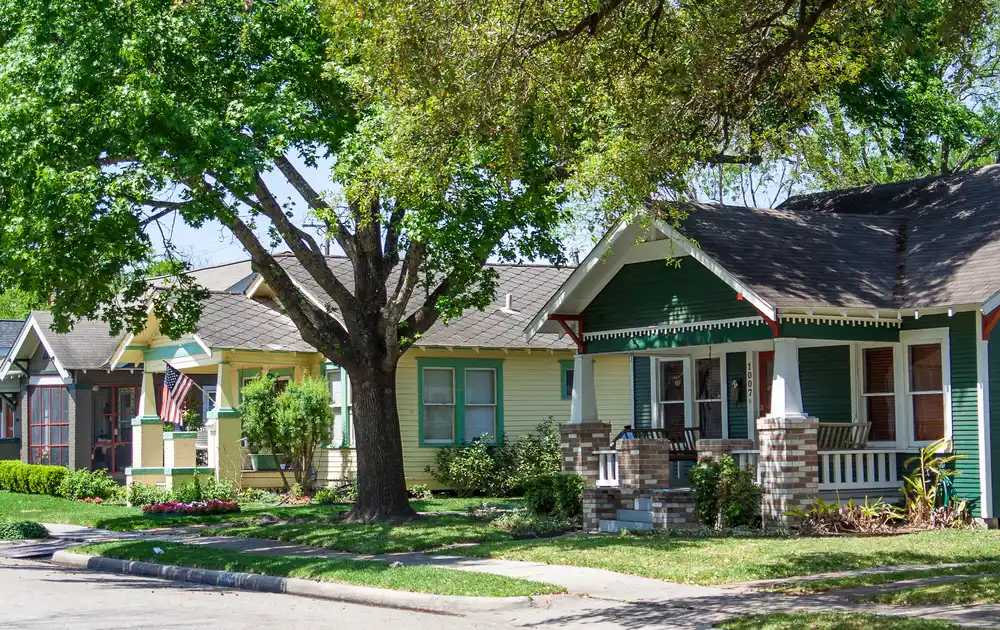 Shutterstock
ShutterstockBenefits of Rising Property Values
Of course, there are also upsides to rising property values for homeowners. For example, many homeowners now have more home equity they can tap into. Homeowners can access their home equity through a home equity loan or home equity line of credit (HELOC) to do things like pay off debt or finance home improvement projects.
Additionally, those who have to pay for mortgage insurance may be able to drop it. “If your equity is now at least 20 percent of the original purchase price,” Consumer Reports says, “you’re no longer required to pay for mortgage insurance.” The source says a homeowner with a $300,000 home could save about $3,000 a year. So, the savings can be significant.
 Shutterstock
ShutterstockThe Bottom Line
Surging home values are a mixed bag for homeowners. On the one hand, there are some notable downsides. For example, homeowners may feel locked into their current homes for one reason or another. And the costs of owning a home — property taxes and insurance — may increase.
But there are upsides, too. For example, homeowners who now have more home equity may be able to tap into it through a home equity loan or line of credit. And those with mortgage insurance may be able to drop it and save a significant amount of money.
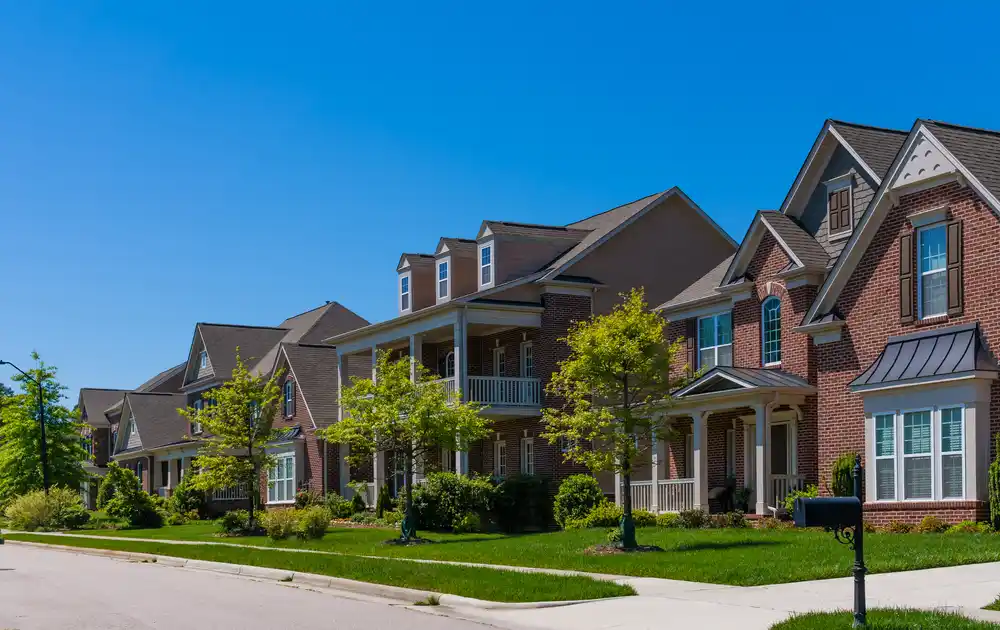 Shutterstock
Shutterstock
